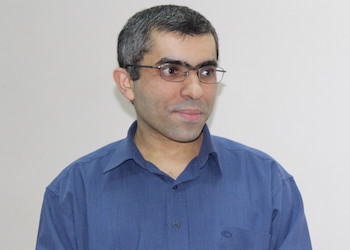Energy Policies beyond IEA Countries: Eastern Europe, Caucasus and Central Asia
- Details

On April 17th, ISET was honored to welcome Her Excellency Ms. Maria van der Hoeven, Executive Director of International Energy Agency (IEA), a leading international institution in energy sector. Prior to becoming Executive Director of IEA, Ms. van der Hoeven served as the Minister of Economic Affairs, the Minister of Education, Culture and Science and a member of the parliament of the Netherlands.
Ms. van der Hoeven visited school facilities, met with ISET faculty members and introduced findings of IEA's recent publication "Energy Policies beyond IEA Countries: Eastern Europe, Caucasus and Central Asia" to the broader ISET community (hardcopy of this publication is available in our library). Report analyzes current energy challenges and opportunities in Eastern Europe, Caucasus and Central Asia.
Compulsory Military Service and Future Earnings: Evidence from a Quasi Experiment
- Details

On Thursday, April 16th, Muhammad Asali, ISET’s resident faculty member, presented his paper, named “Compulsory Military Service and Future Earnings: Evidence from a Quasi Experiment” to the ISET community.
Military service can have either positive, negative or no effect on future earnings of the former military servants. On the one hand, military service keeps people out of the labor market and therefore, harms their labor market skills, resulting in lower wages afterwards.
On the other hand, it might help acquire some new skills (e.g. discipline) which are needed in the labor market and therefore, benefit the former military servants in terms of earnings. There is little consensus in the literature about this relationship.










